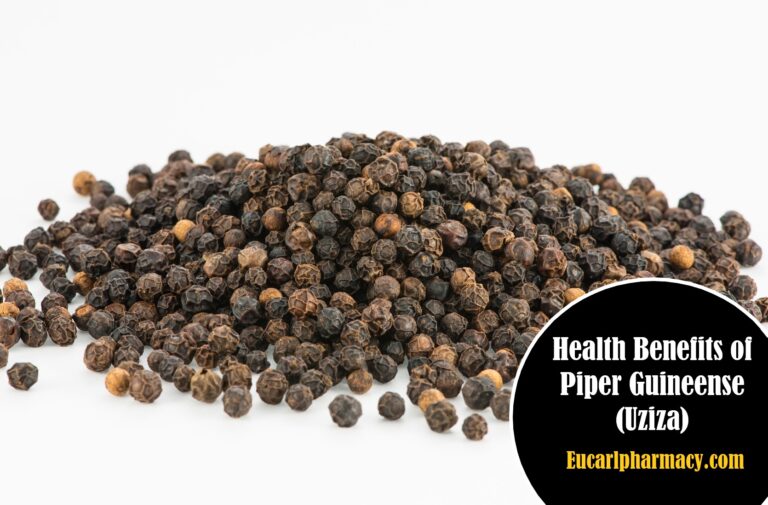Agbalumo: Side Effects And Health Benefits Of African Star Apple
Agbalumo is a fruit also known as African star apple. It is known as agbalumo by the Yorubas, udara by the Igbos, and agwaluma by the Hausas. It is also known as cherry in Nigeria. It is botanically known as Chrysophyllum albidum. It is a tropical fruit that grows wild in the country. Some of these fruits are sweet while some are sour.
It is a fruit rich in vitamin C. Its vitamin C content is higher than that found in citrus fruits. It also contains fibre, vitamin B1, vitamin B2, zinc, potassium and magnesium. It is a seasonal fruit and is fully in season between December and March.
Agbalumo: Side Effects And Health Benefits Of African Star Apple
The Health Benefits of Agbalumo are as follows:
1. High vitamin C content
The agbalumo has a high source of vitamin C, even higher than that in citrus fruits like oranges, grape and lemon. It has 25mg of vitamin C for every 100g of fruit.
2. Lowers blood sugar
Studies reveal that agbalumo is capable of lowering blood sugar levels and cholesterol in diabetics. This helps them control their sugar level and also prevent complications of heart disease.
3. Antioxidant
Agbalumo contains antioxidants that destroy free radicals that can cause diseases like cancer and cardiovascular diseases. It protects the body from oxidative damage and helps the body remain healthy.
Free radicals are waste substances produced by the body cells as the body processes food and reacts to the environment. If the body cannot handle and remove free radicals efficiently, oxidative stress can occur. This can cause harm to cells and body functions.
Factors that increase the production of free radicals in the body can be internal, such as inflammation, or external, for instance, pollution, ultraviolet exposure, and cigarette smoke. Oxidative stress has been linked to cancer, arthritis, stroke, heart disease, emphysema, immune deficiency, Parkinson’s disease, and other inflammatory conditions.
Antioxidants like the ones found in Agbalumo are said to neutralize these free radicals, hence, boosting one’s overall health.
4. Treats constipation
Agbalumo contains fibres that help keep the gastrointestinal tract full and also help with bowel movement. In this way, constipation does not occur with taking African star apple regularly. Fibres are edible parts of carbohydrate foods that cannot be digested.
Fibres slow down digestion and help the nutrients in food to be absorbed. They also absorb water into stools and also add bulk to stools, making them pass out quickly through the intestines. Women should get 25gms of fibre daily while men should get 38gms of fibre daily.
5. Promotes skin health
Agbalumo contains vitamins and minerals that keep the skin moisturized, supple and fresh. Vitamin C in Agbalumo also acts as an antioxidant for the skin and protects the skin from free and harmful radicals.
Vitamin C also protects the skin from ultraviolet rays from the sun. It lightens dark spots, helps to smoothen wrinkles, develops collagen, promotes wound healing, and reduces scars. In some parts of Nigeria, the seeds of Agbalumo is used in treating some skin diseases. Agbalumo is also known to protect against some types of cancers.
6. Weight loss
Taking agbalumo regularly provides fibre to the gastrointestinal tract that keeps it full and makes one avoid consuming too many calories in food.
Agbalumo also contains very few calories -67 calories and it is ideal for people interested in losing weight. People who are overweight or obese are likely to develop chronic diseases like hypertension, diabetes,
Stroke, cancer and depression. Eating more fibre-dense foods like Agbalumo can also help lose belly fat and prevent belly fat gain. A recent study found that people who added more fibres to their diets – without changing anything else – lost almost as much weight as people who followed the heart-healthy, low-fat eating plan.
This shows that people who eat more fibres tend to have healthier body weight. Since Agbalumo is a fibre rich food, it is one food ideal to indulge in.
7. Promotes colon health
Agbalumo contains fibre that is good for colon health. Research has discovered that eating foods high in fibre can reduce the risk of having colorectal cancer. Colon cancer rates have been increasing, especially in younger people.
It is, therefore, important to add to one’s food regimen foods that can help prevent colon cancer. Agbalumo is one such food. Eating Agbalumo regularly can help prevent colon cancer.
8. Vitamins and minerals
Agbalumo contains vitamins and minerals that help to keep the functioning of the body in full gear. It contains vitamin A that is good for eyesight, supports a healthy immune system, helps bones to grow normally, prevents acne and supports the reproduction and healthy growth.
Vitamin C builds a strong immune system, supports healthy skin, is ideal for growth and development, builds and repairs body tissues, helps in absorption of iron, forms collagen, helps in wound healing and protects bone health.
Agbalumo also contains calcium that protects bone health, good for the heart, muscle and nerve functions, and protects against cancer and high blood pressure. Agbalumo also contains iron that produces haemoglobin, promotes a healthy immune system, helps with brain development, helps produce collagen and other proteins, helps prevent anaemia, and helps convert beta carotene to vitamin A.
9. Pregnant women
Agbalumo is an ideal food for pregnant women. Its acidic taste helps to prevent nausea, vomiting and excessive salivation. It also provides energy and contains useful vitamins and minerals such as vitamin C, phosphorus, calcium and iron. These are beneficial to the pregnant woman and her child.
Side effects of Agbalumo
1. Excessive consumption of the fruit can lead to heartburn
2. According to an article published by the Guardian newspaper, the ethanolic extract of the root bark of the Agbalumo tree may damage fertility in men. The research discovered that extracts from the root of the Agbalumo tree damaged the reproductive ability of experimental Wistar rats. The research demonstrated that the root bark produces a strong inhibition of serum testosterone and gonadotropin concentration.
Conclusion
The African star apple Agbalumo is an ideal fruit with various nutrients that help promote good body function. The different parts of the Agbalumo tree like the leaves, roots and bark can also be used to cure cough, high blood pressure, yellow fever and much more.
However, research has shown that the root of the Agbalumo tree is dangerous to male fertility. Eat the Agbalumo fruit in moderation to benefit from all the nutrients packed in it.






